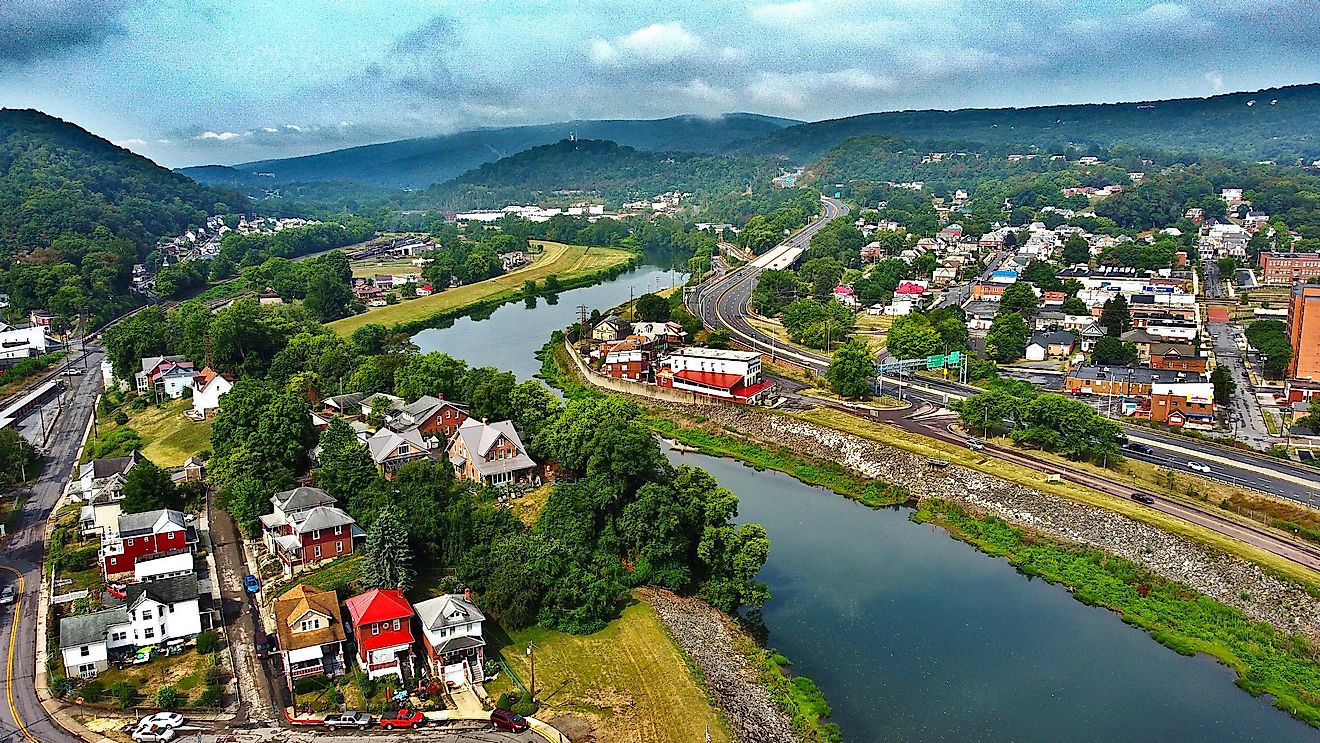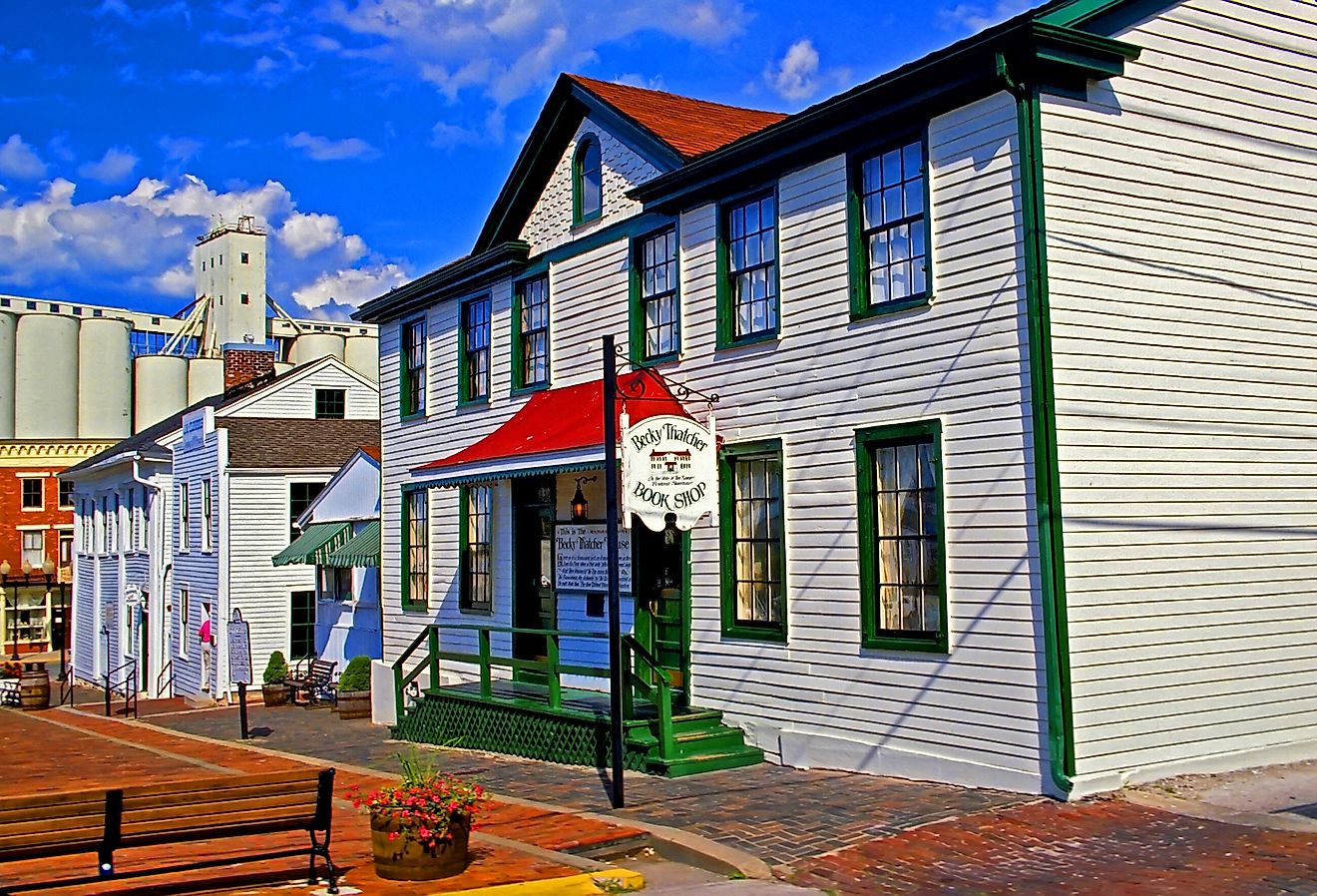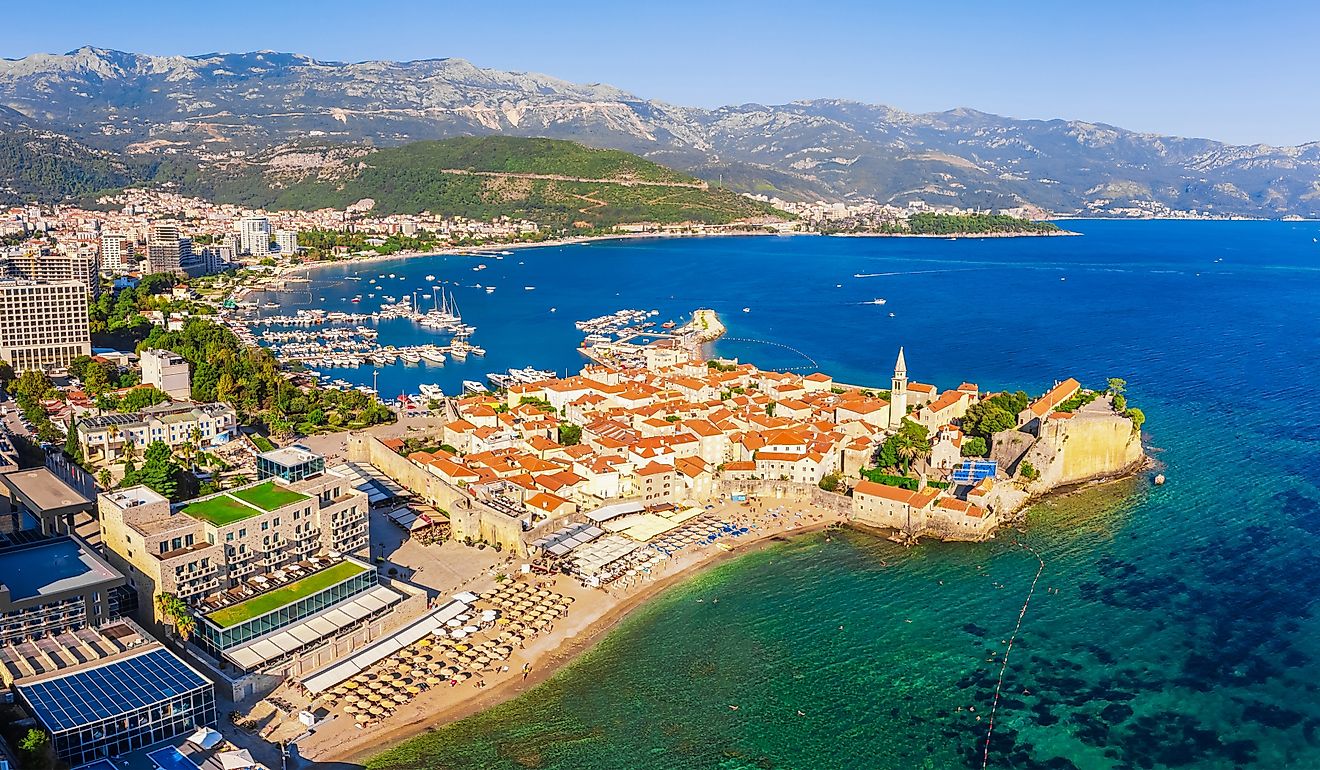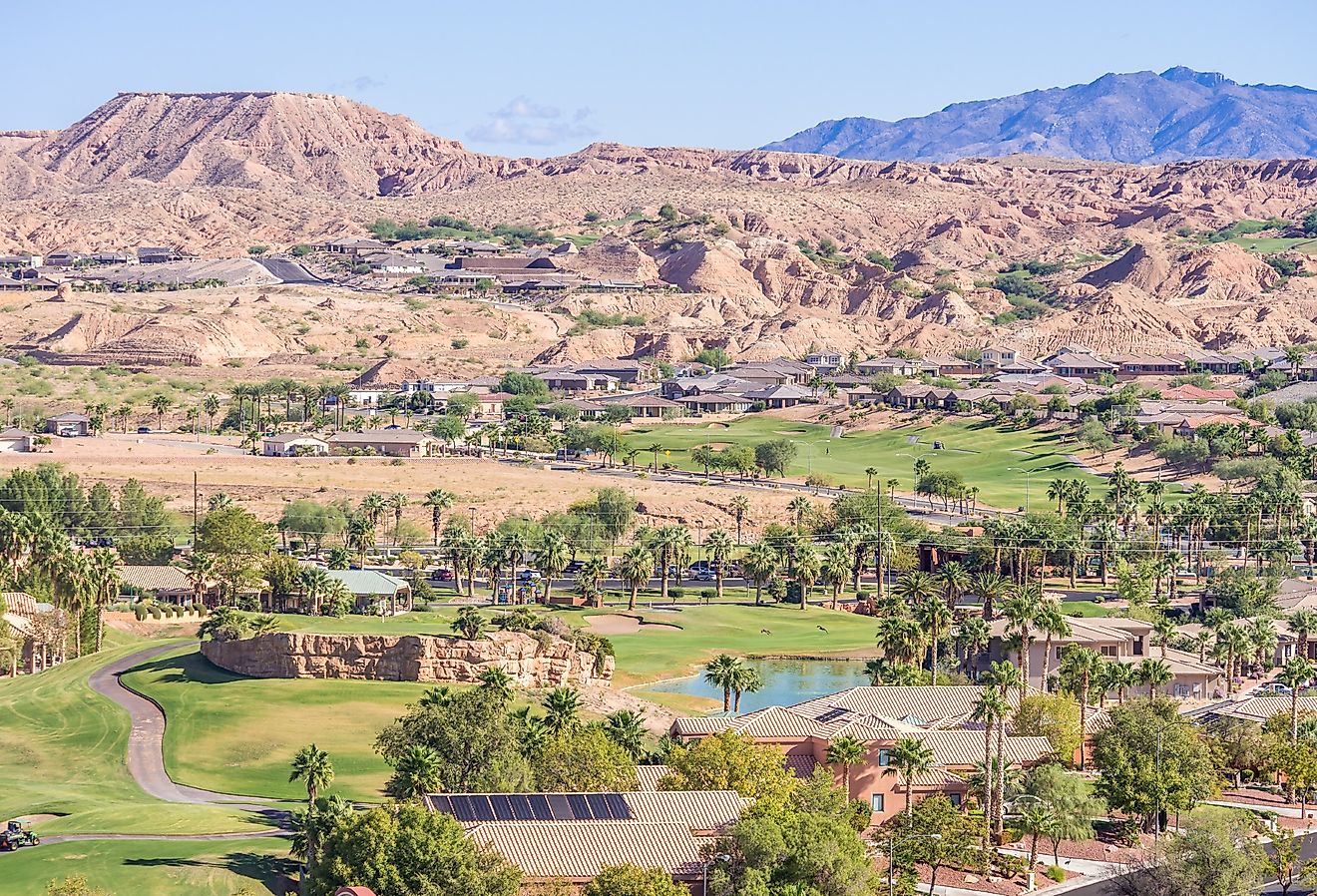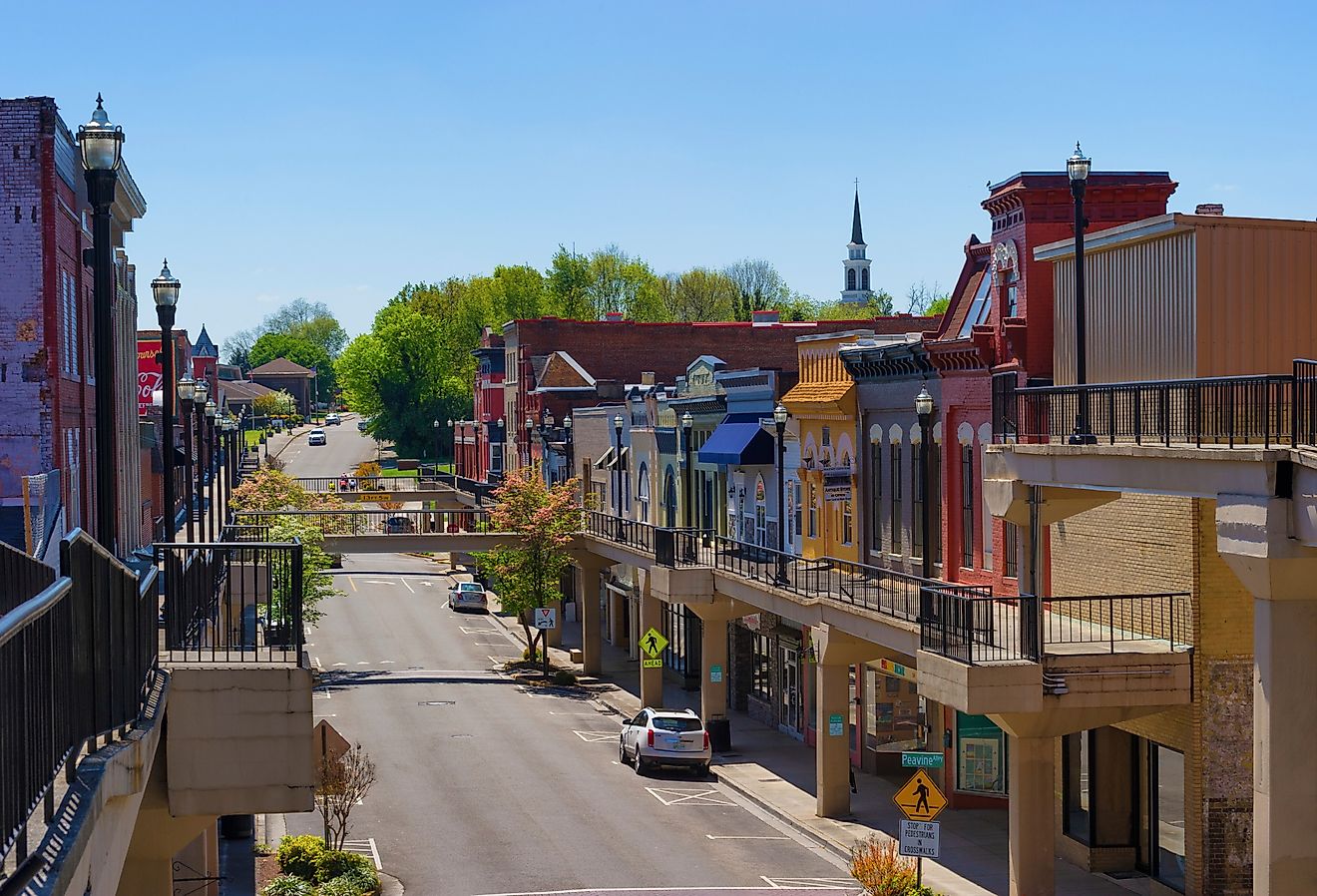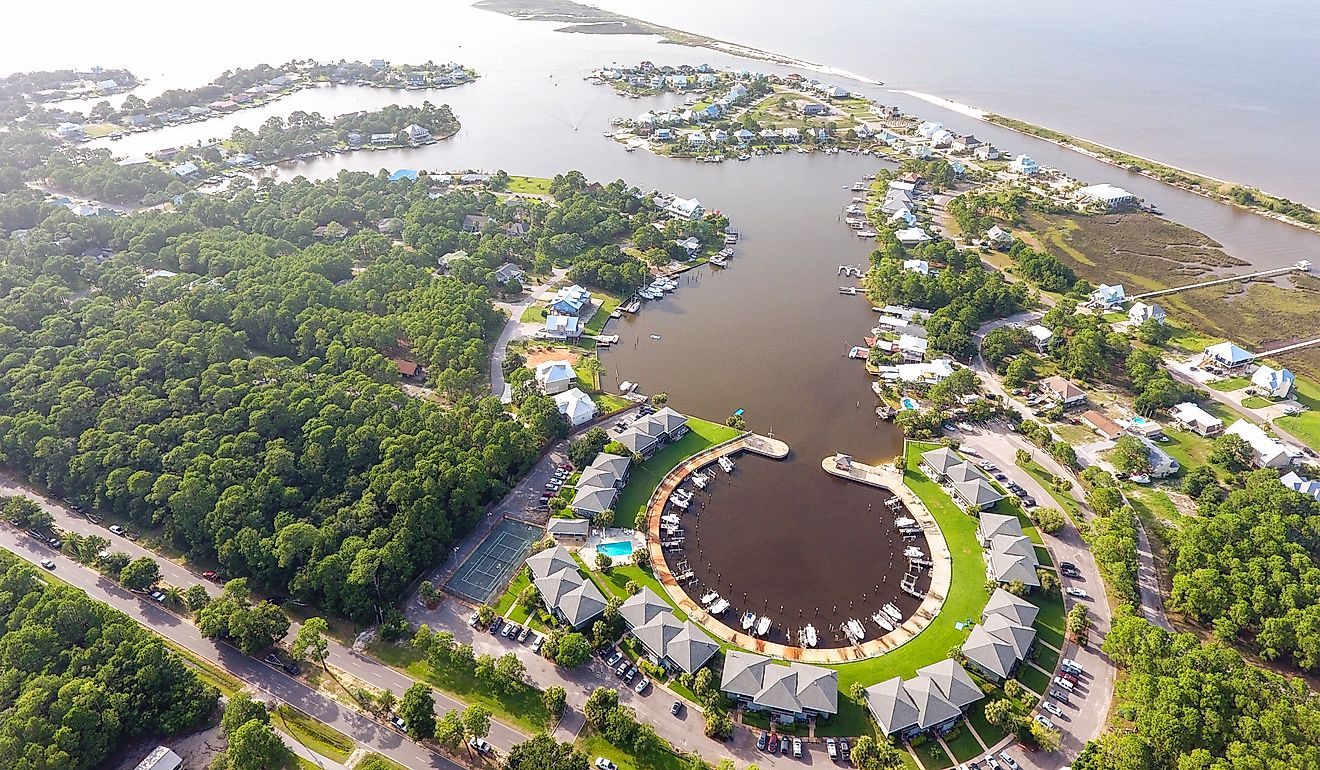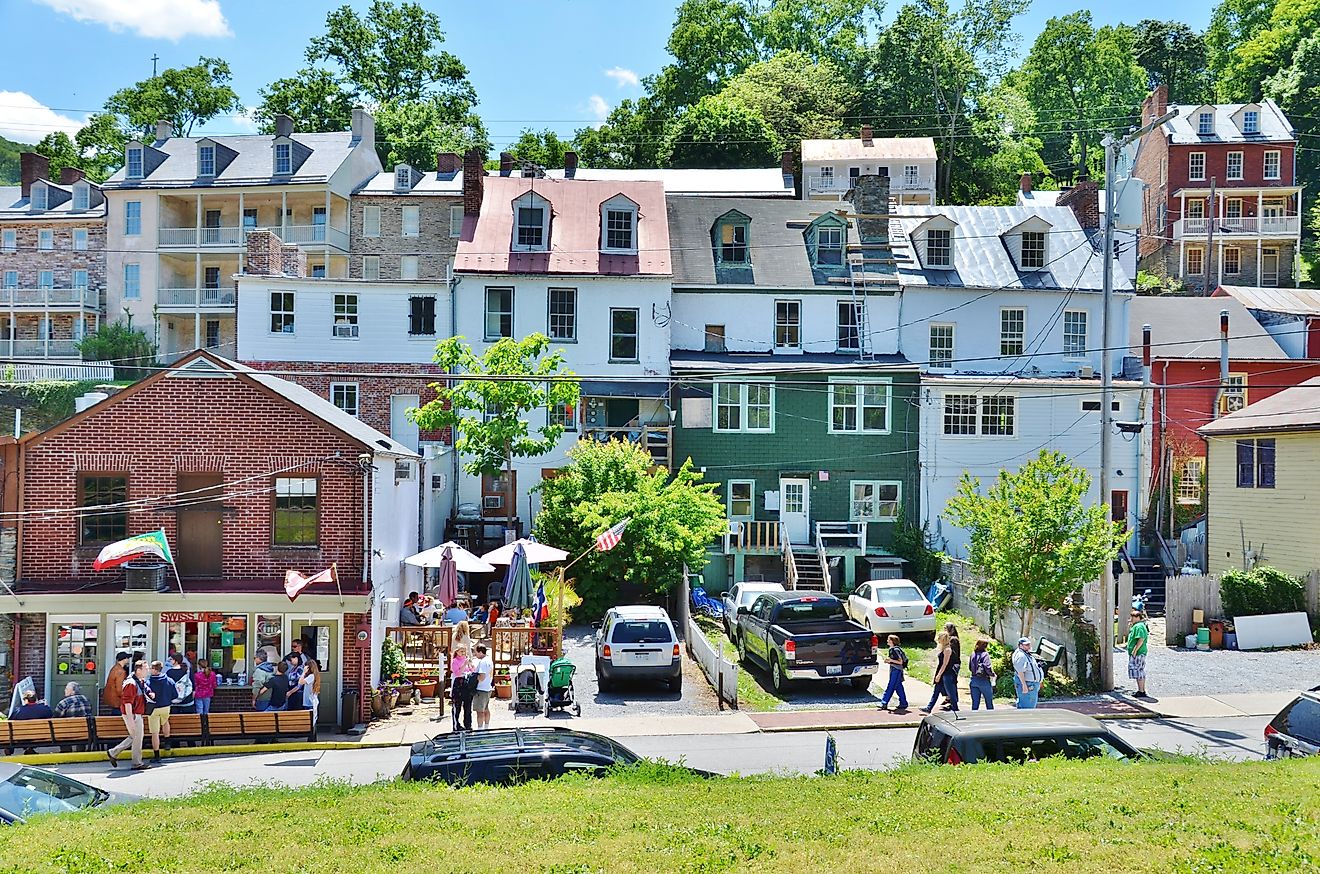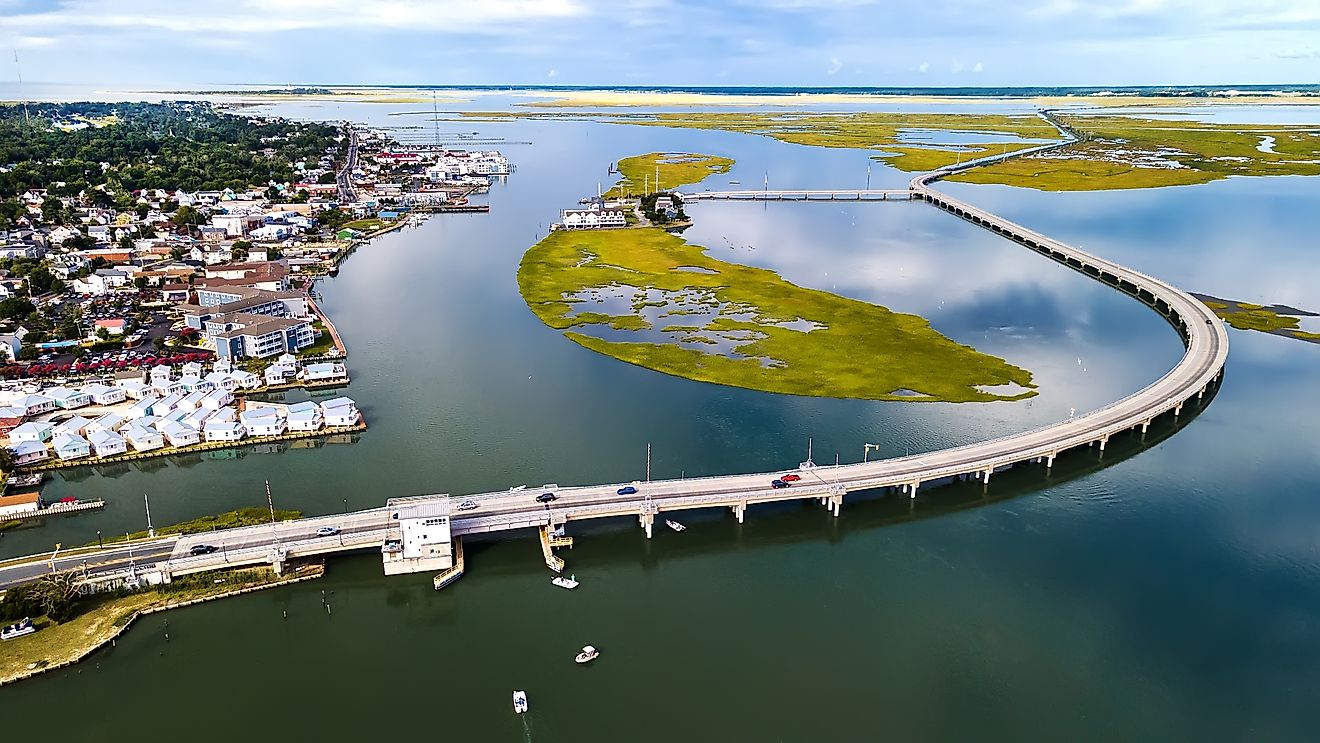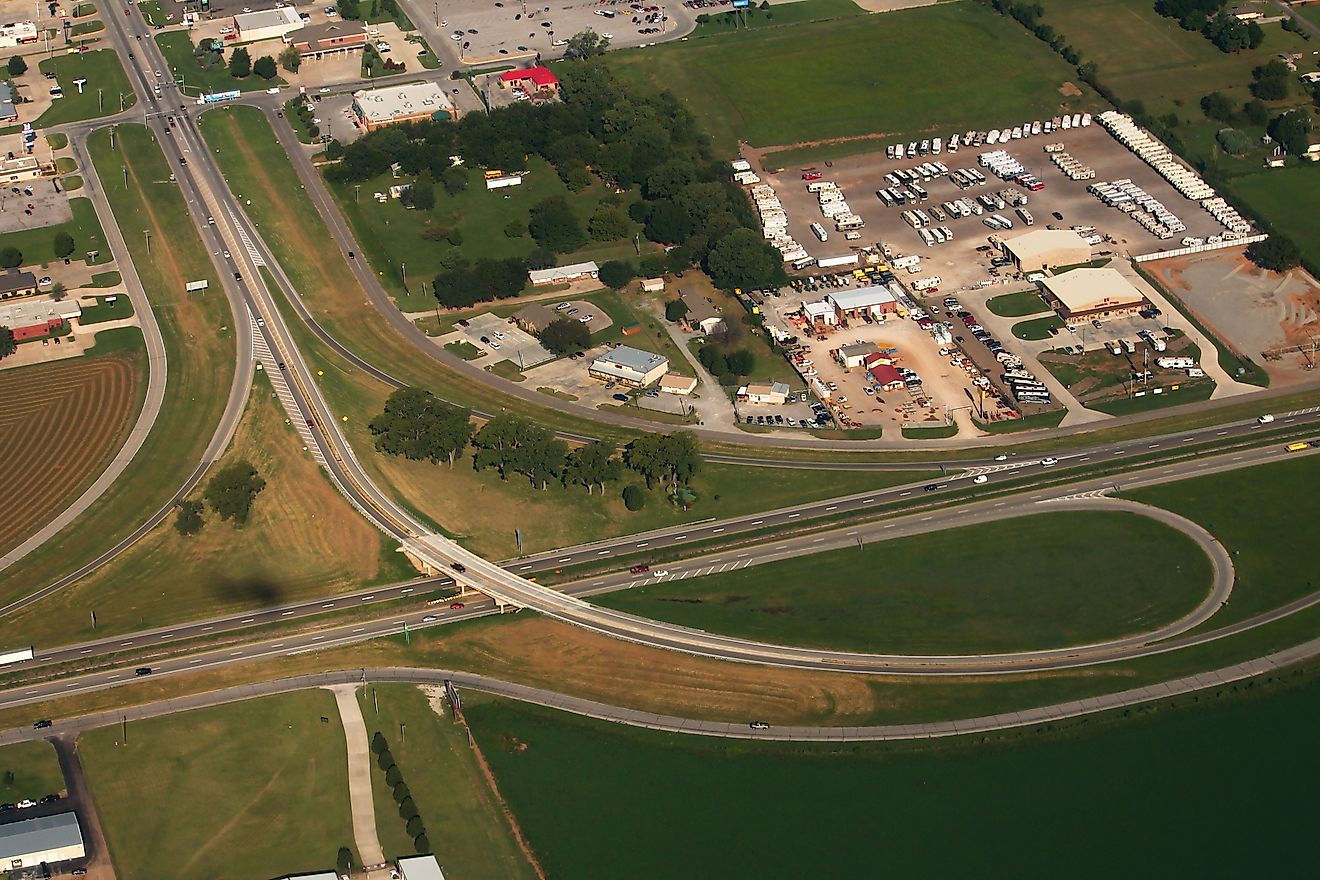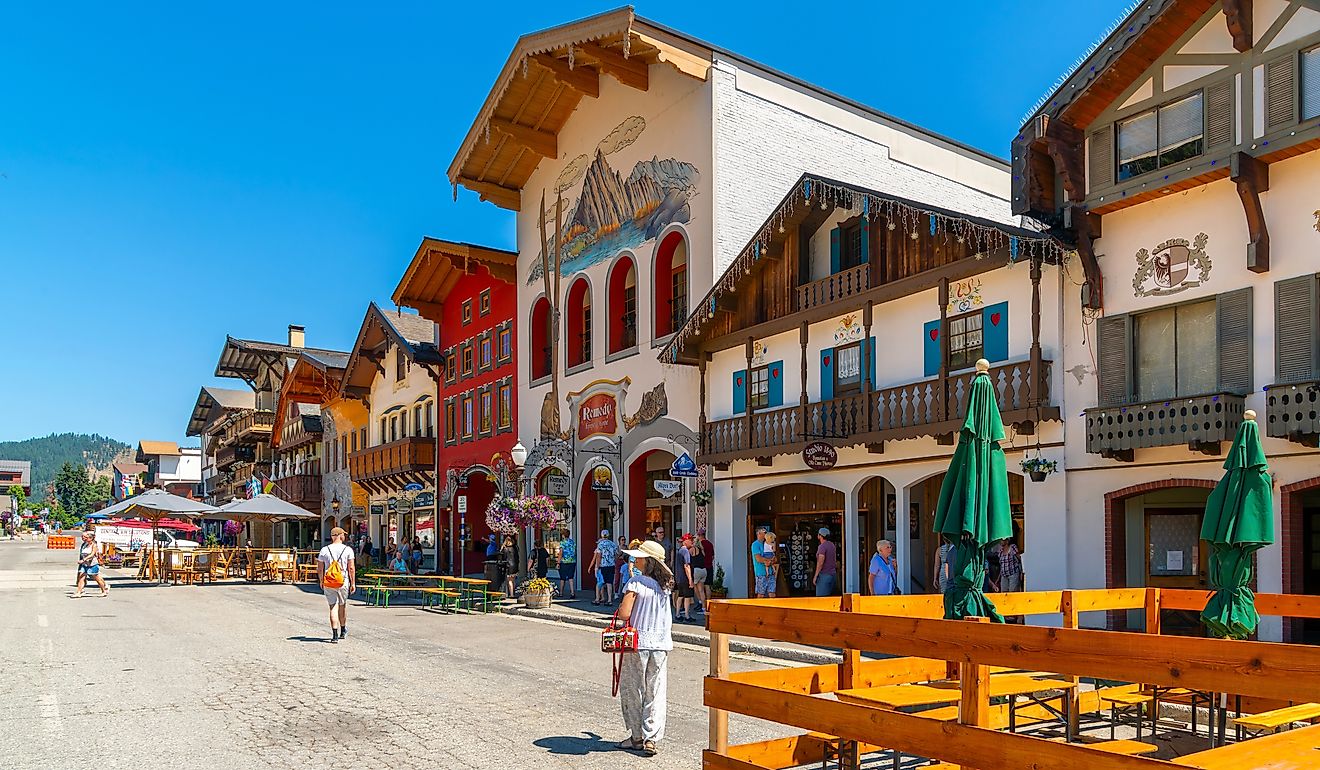The World's Most Famous Valleys
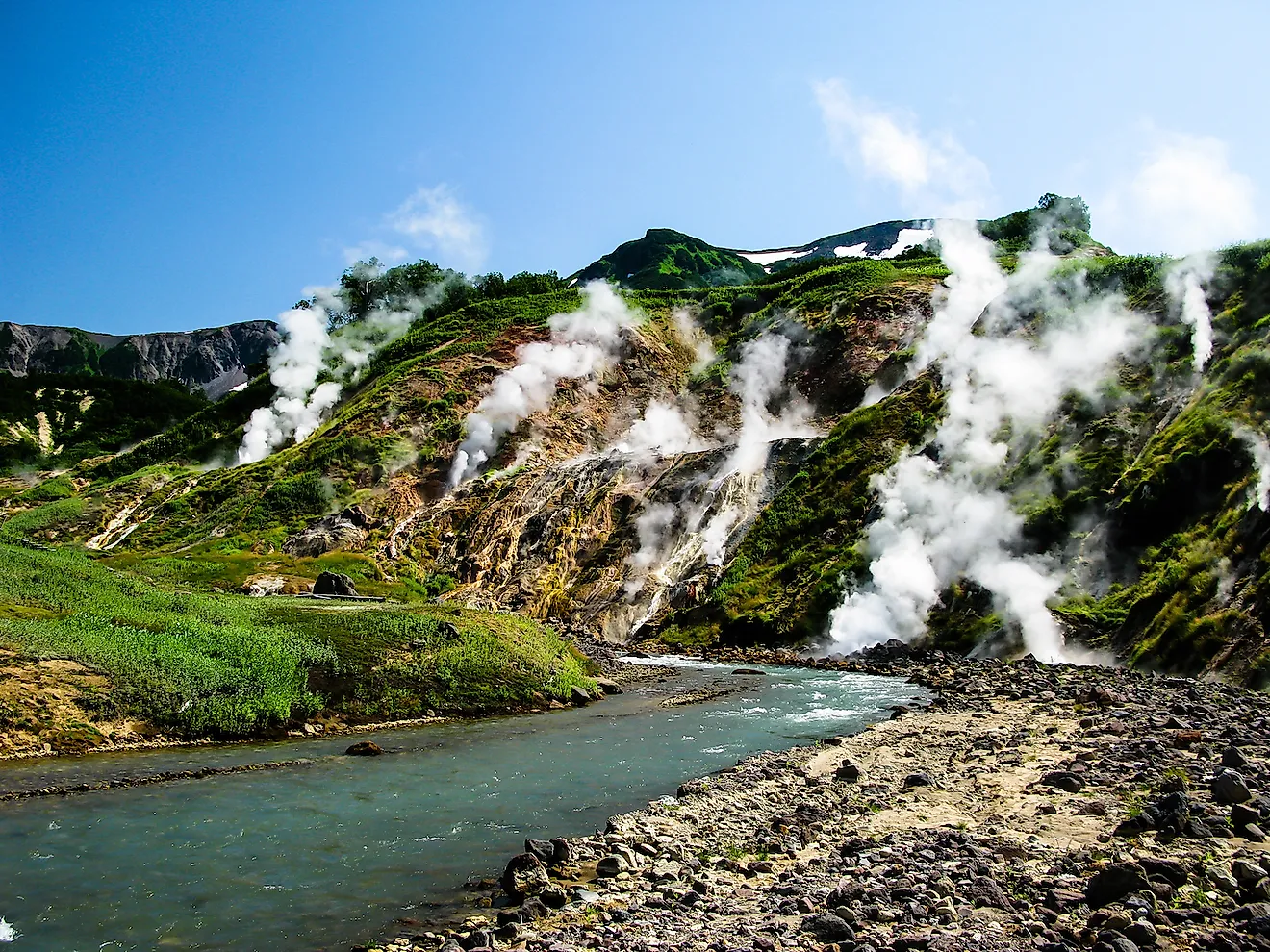
- The Valley of the Ten Peaks is such an iconic representation of Canadian wilderness that it used to feature on the back of their twenty dollar bill.
- Lauterbrunnen Valley in Switzerland is so picturesque that Lord of the Rings author J.R.R. Tolkien modeled the Elven kingdom of Rivendell after it.
- Nepal's Barun Valley is such a mystical-looking paradise that it is known in Buddhist folklore as a place where no one ages.
Simply put, valleys are stretches of depressed land located between hills or mountains. Oftentimes, they contain a series of rivers or lakes that give life to a diverse collection of flora and fauna. Some valleys are considered to be the most idyllic places in the entire world. Tourists travel from all over just to gawk at the natural beauty and snap a photo or two. From Canada to the Russian Far East, the following are ten of the most famous valleys on the planet.
10. Valley of the Ten Peaks (Canada)
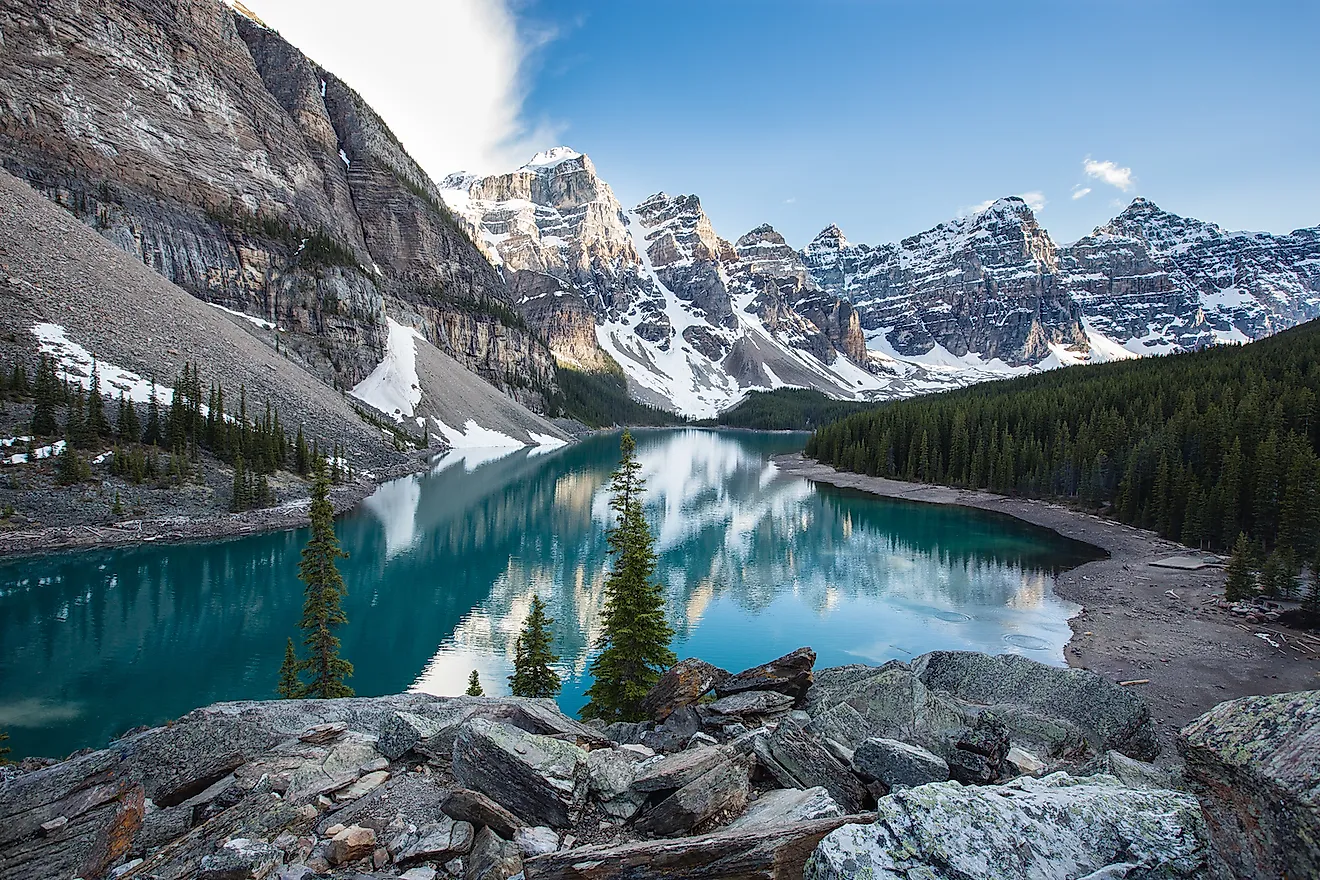
The Valley of the Ten Peaks is located in Banff National Park in the western province of Alberta. It is aptly named for the ten snow-capped mountains so magnificently reflected in the blue, mirrorlike surface of Moraine Lake. Measuring approximately 3,424 meters high, Deltaform Mountain is the tallest of the ten behemoths. What part of the valley floor is not filled with water is covered in dense forest that many critters call home. The Valley of the Ten Peaks is such an iconic representation of Canadian wilderness that it used to feature on the back of their twenty dollar bill.
9. Yosemite Valley (United States)
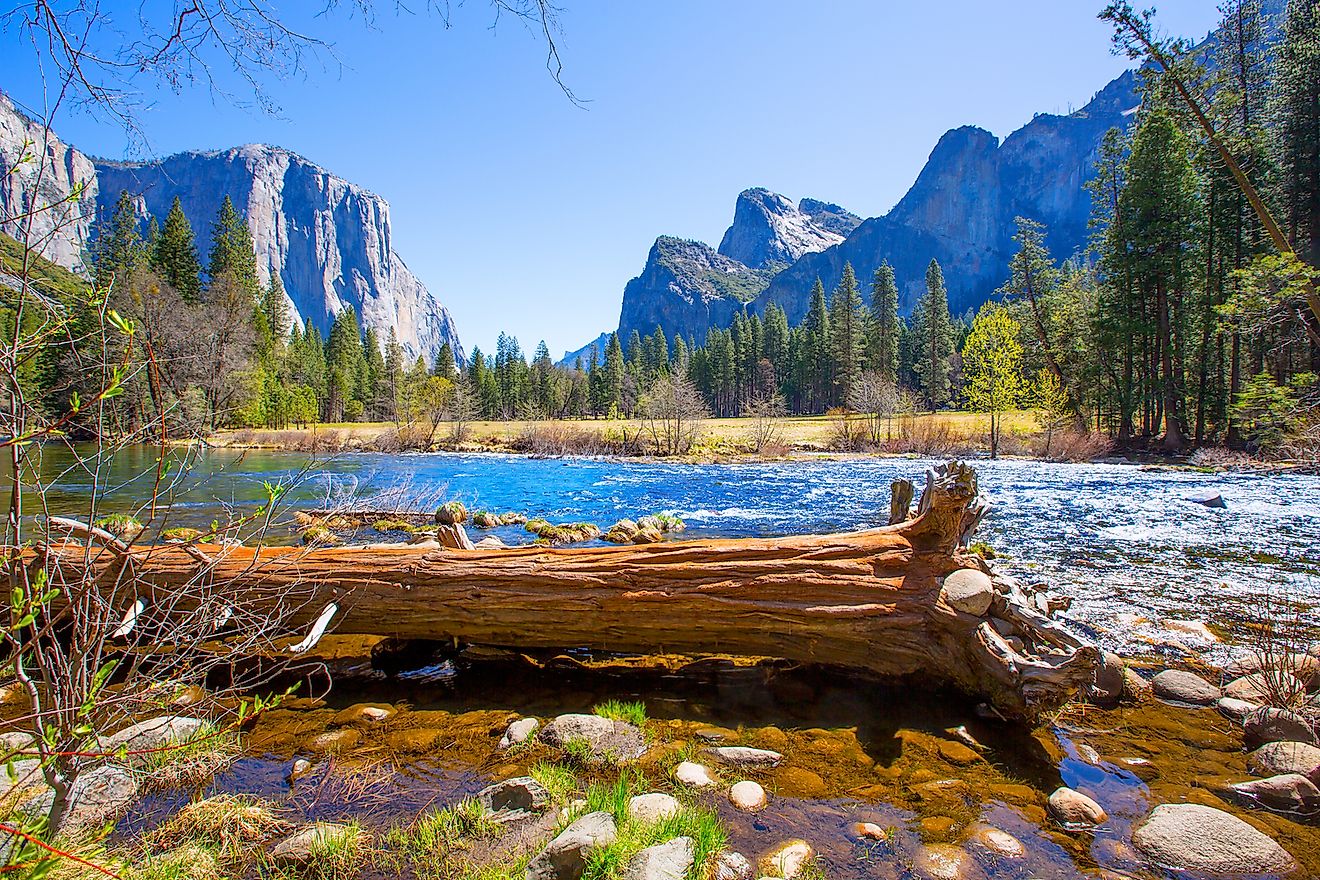
Stretching approximately 7.5 miles, Yosemite Valley is located in the Sierra Nevada mountain range of Central California. Formed by glaciers over thirty million years ago, it is most famous for its sheer granite cliffs. Rock climbers come from all over to challenge these monolithic beasts, particularly El Capitan which rises nearly a thousand meters above the ground. Blanketed in shadow, these rock formations turn blue at night. Less dangerous hiking trails offer casual tourists gorgeous panoramic views of lush forests and green meadows. The valley is also home to countless waterfalls, including Yosemite Falls, the highest waterfall in North America.
8. Kalalau Valley (United States)
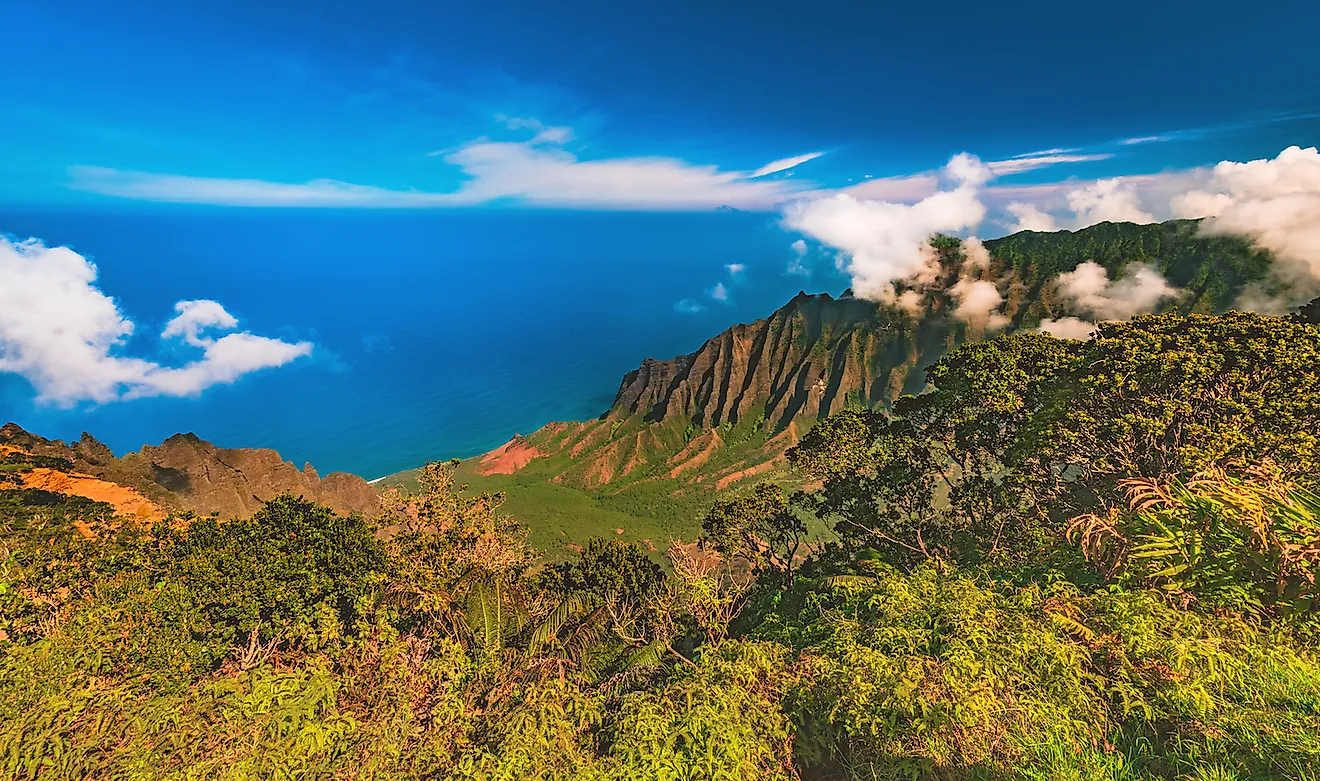
Kalalau Valley is located on the Hawaiian island of Kaua‘i. Surrounded by cliffs measuring more than 610 meters high, this natural hideaway is often referred to as Kaua‘i's Cathedral and is only accessible by foot, kayak, or helicopter. The sun and frequent rain have transformed this valley into a thriving paradise where flora grows along the steep cliffs and fauna live within the forests and surrounding hills. At the end of the trail cutting through the greenery, mangoes, passion fruit, and cherries grow next to a waterfall. Because of its designation as a state park, nobody is permitted to live in Kalalau Valley.
7. Valle de la Luna (Chile)
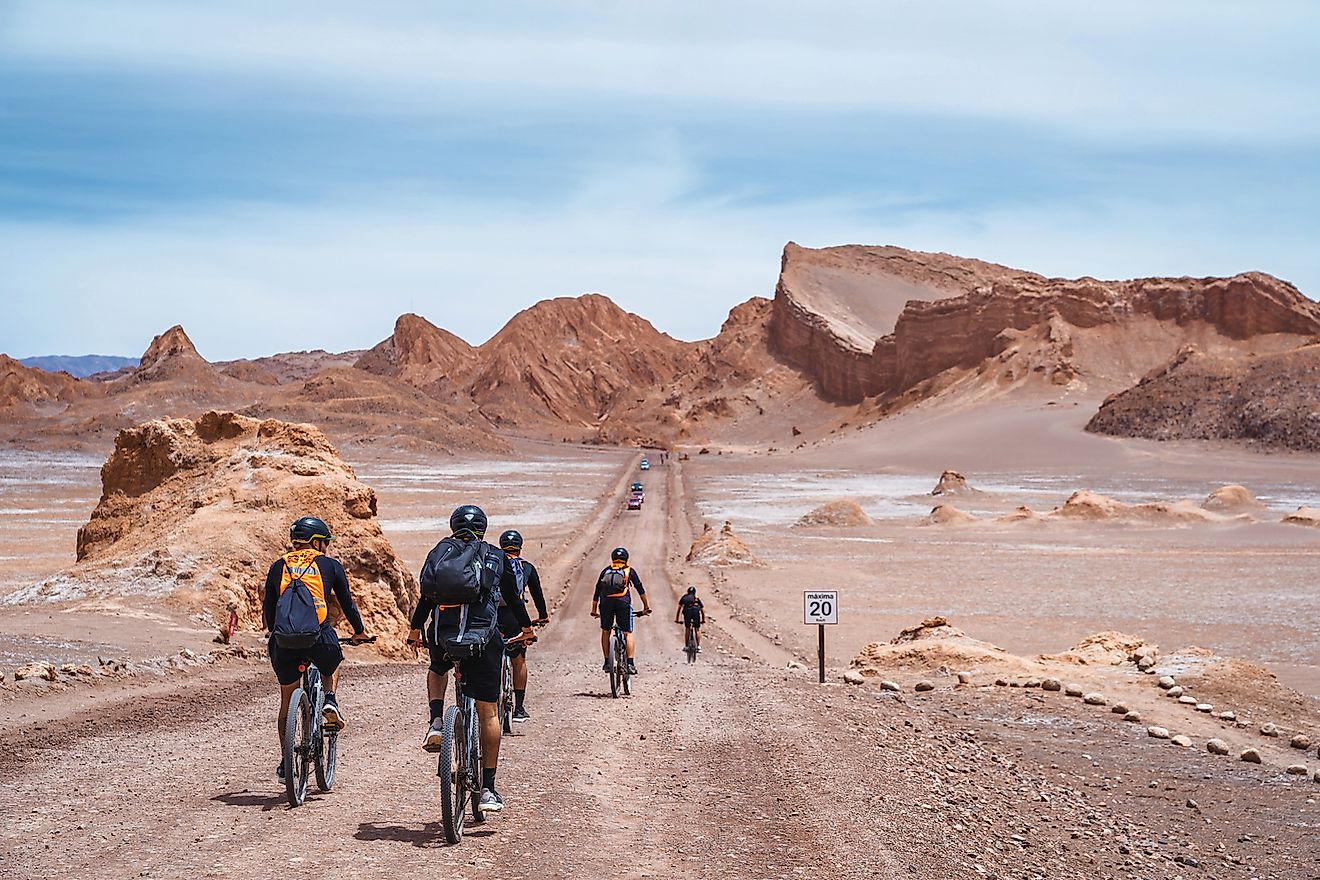
Valle de la Luna—or Valley of the Moon—is a part of the Atacama Desert in the South American country of Chile. The bleak landscape is composed of various rock formations carved by strong wind and sand. Numerous dry lakes and caverns dot the region. It is considered to be one of the driest places in the world, with some parts last receiving rain hundreds of years ago. Because of this, there is little wildlife to be found there. As its name implies, it is famous for resembling a barren moonscape. In fact, a prototype of the Mars rover was tested in the valley due to its unique lunar-like terrain.
6. Lauterbrunnen Valley (Switzerland)
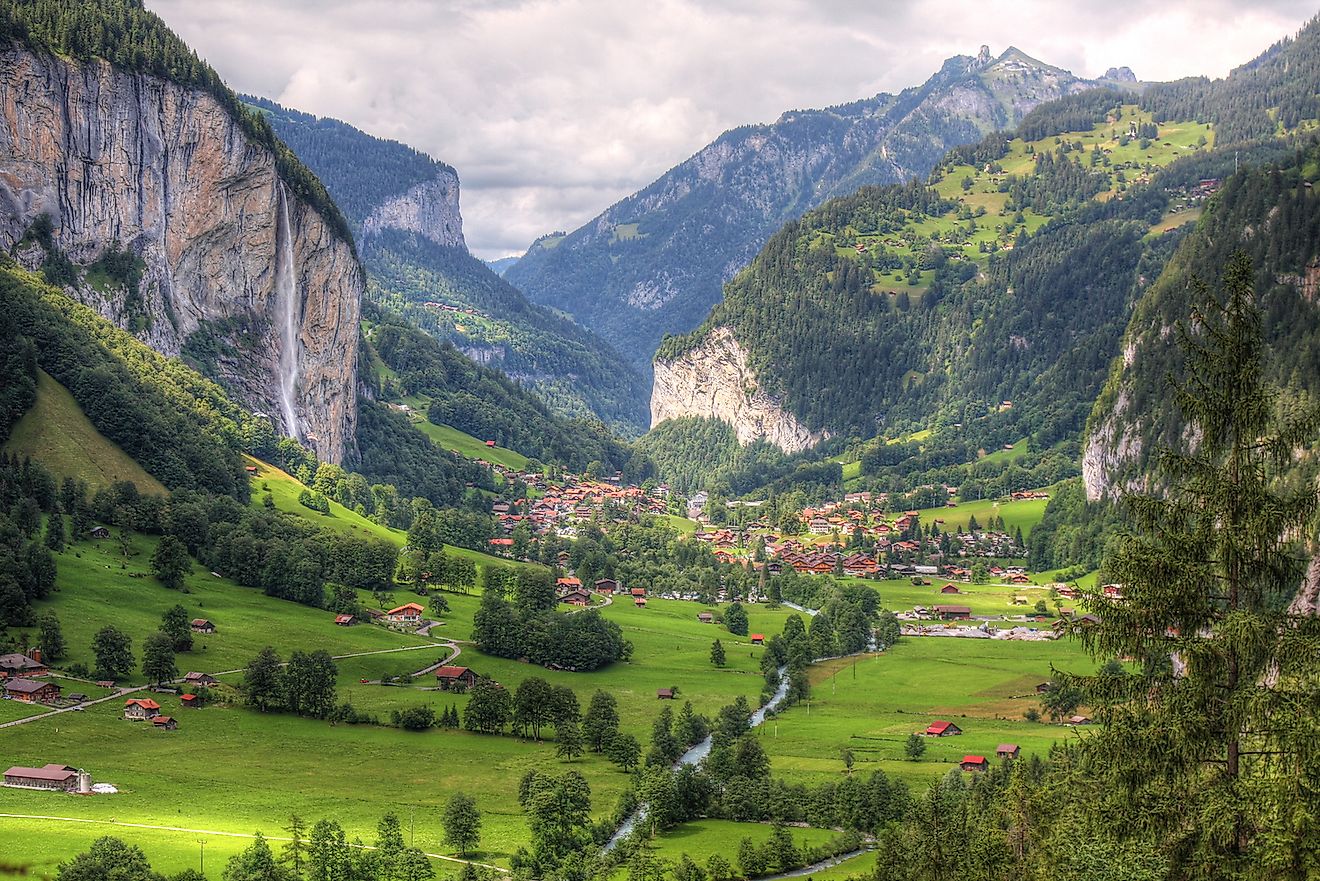
Located deep in the Swiss Alps, Lauterbrunnen Valley is one of the biggest nature conservation areas in Switzerland. Known for its 72 waterfalls, its very name means “many fountains.” The most famous is Staubbach Falls, which at 300 meters, is one of the highest free-falling waterfalls in Europe. Tourists can walk through wildflower meadows and clusters of trees in full view of snow-capped mountains, breathing in the fresh valley air. It is also a popular skiing region in the winter. The surrounding area is so picturesque that Lord of the Rings author J.R.R. Tolkien modeled the Elven kingdom of Rivendell after Lauterbrunnen Valley.
5. Valley of Flowers (India)
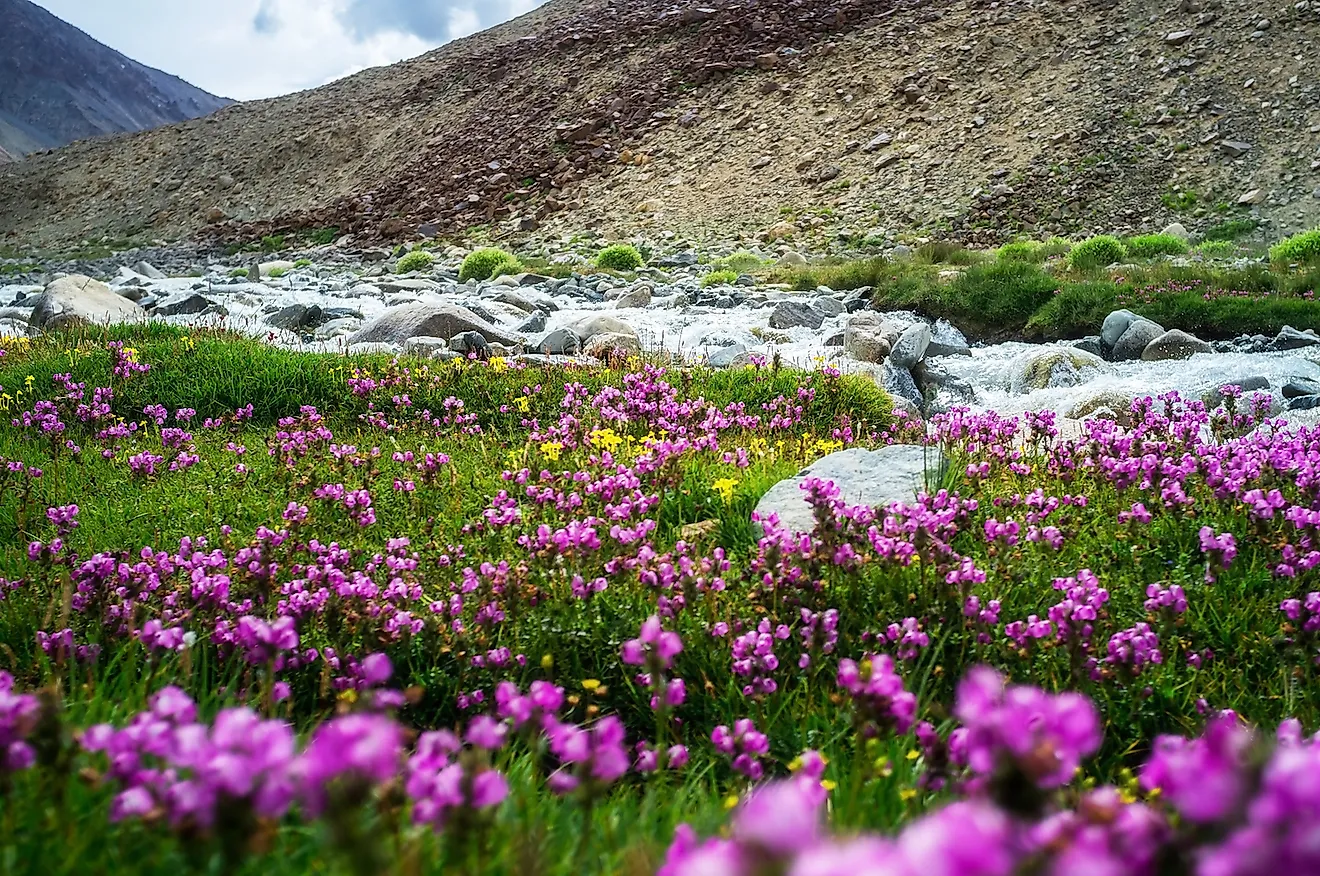
The Valley of Flowers is a high-altitude Himalayan valley located in the state of Uttarakhand. Rising over 3,000 meters above sea level and stretching across 87.50 square kilometers of land, it is known as one of the most beautiful and peaceful places in India. Revered by both mountain climbers and botanists alike, the valley is blanketed with alpine wildflowers. From mid-July to September, hikers can wander among the bursts of purples, pinks, and blues. The region is also alive with incredible wildlife, from Asiatic bears to the Himalayan blue sheep. In 2002, the Valley of Flowers was declared a UNESCO World Heritage Site.
4. Barun Valley (Nepal)
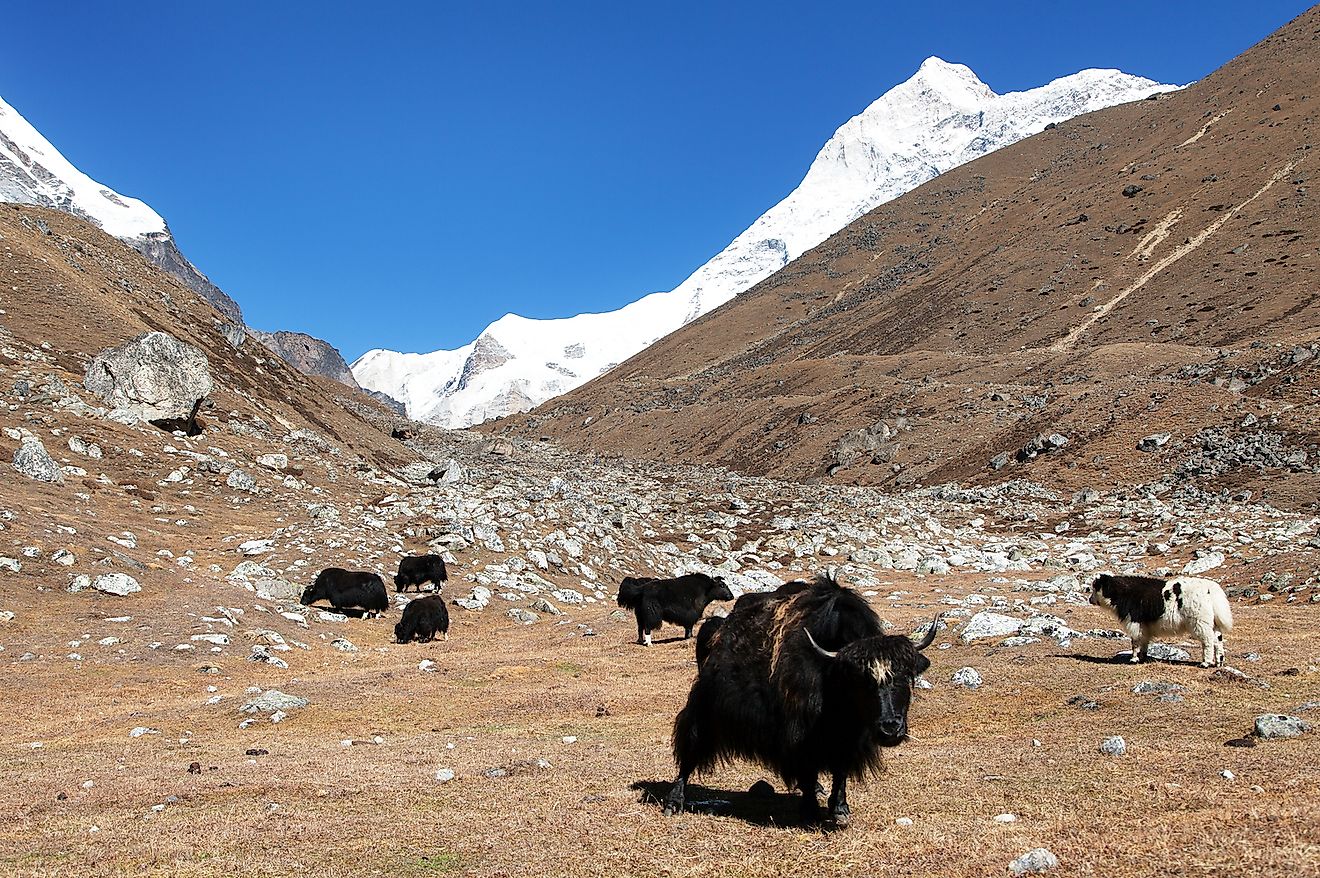
Barun Valley is located in the Himalayas in the Asian country of Nepal. It is situated at the base of Mount Makalu, the fifth-highest mountain in the world, and contains some of the world’s last untouched ecosystems. Among the forests, waterfalls, and wild orchids roam rare animals such as musk deer and the endangered snow leopard. It is such a mystical-looking paradise that it is known in Buddhist folklore as a place where no one ages. According to ancient religious literature, Barun Valley will be one of seven places left in the world where life can thrive in the wake of a global cataclysmic event.
3. Jiuzhaigou Valley (China)
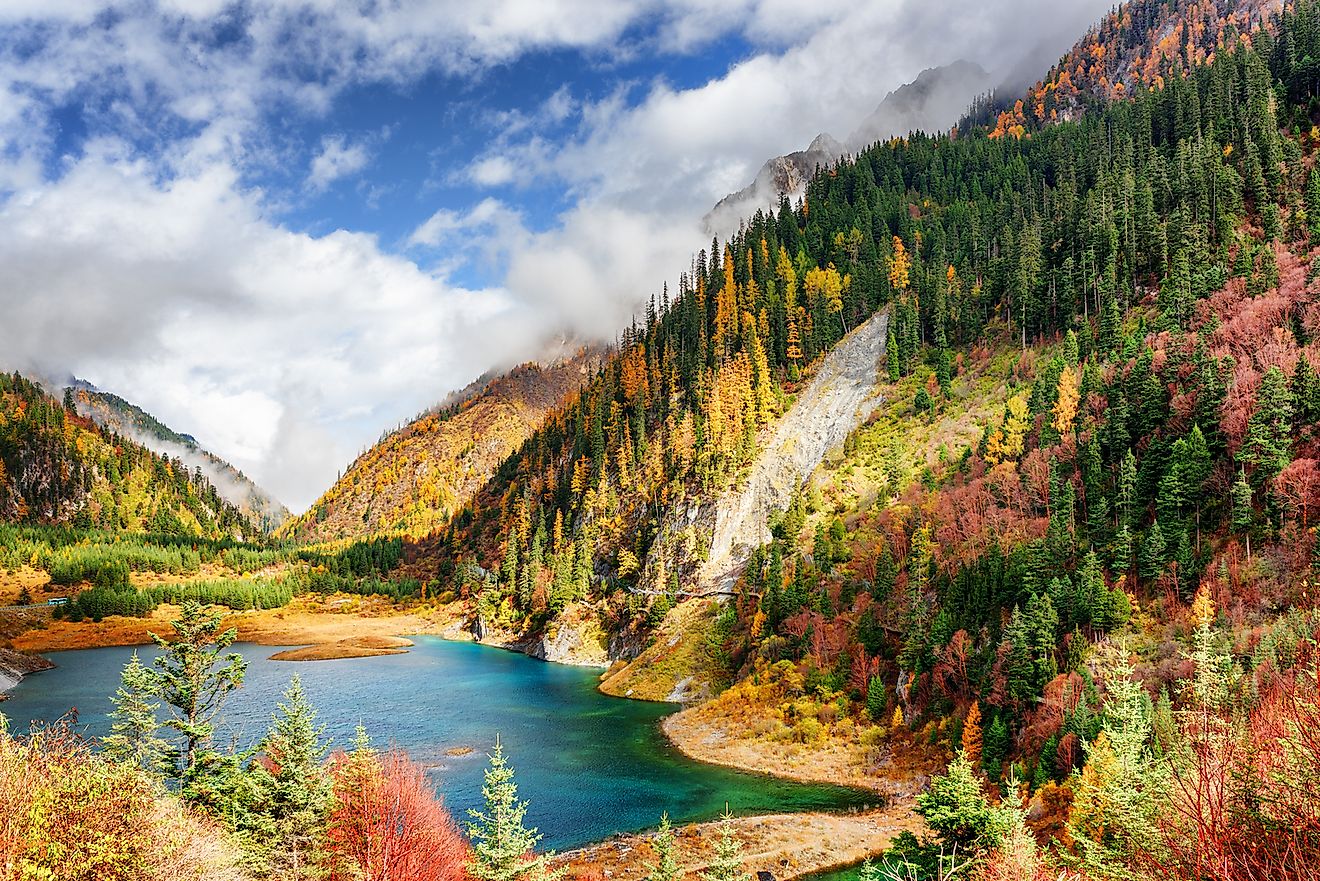
The Jiuzhaigou Valley is a nature reserve and national park in the Sichuan Province of China. Spanning 720 square kilometers, it is a breathtaking region known for its many lakes and springs. A local legend tells the story of how the Goddess Semo dropped a mirror made of wind and clouds that shattered to create the countless lakes that dot the valley. The most impressive is Five Flower Lake, an ethereal paradise where ancient tree trunks swim among the cyan water. The region is also home to many endangered animals, including the giant panda and the Sichuan takin. Tourists can accompany guides on daily hikes or set up camp for a few days.
2. Danum Valley (Borneo)
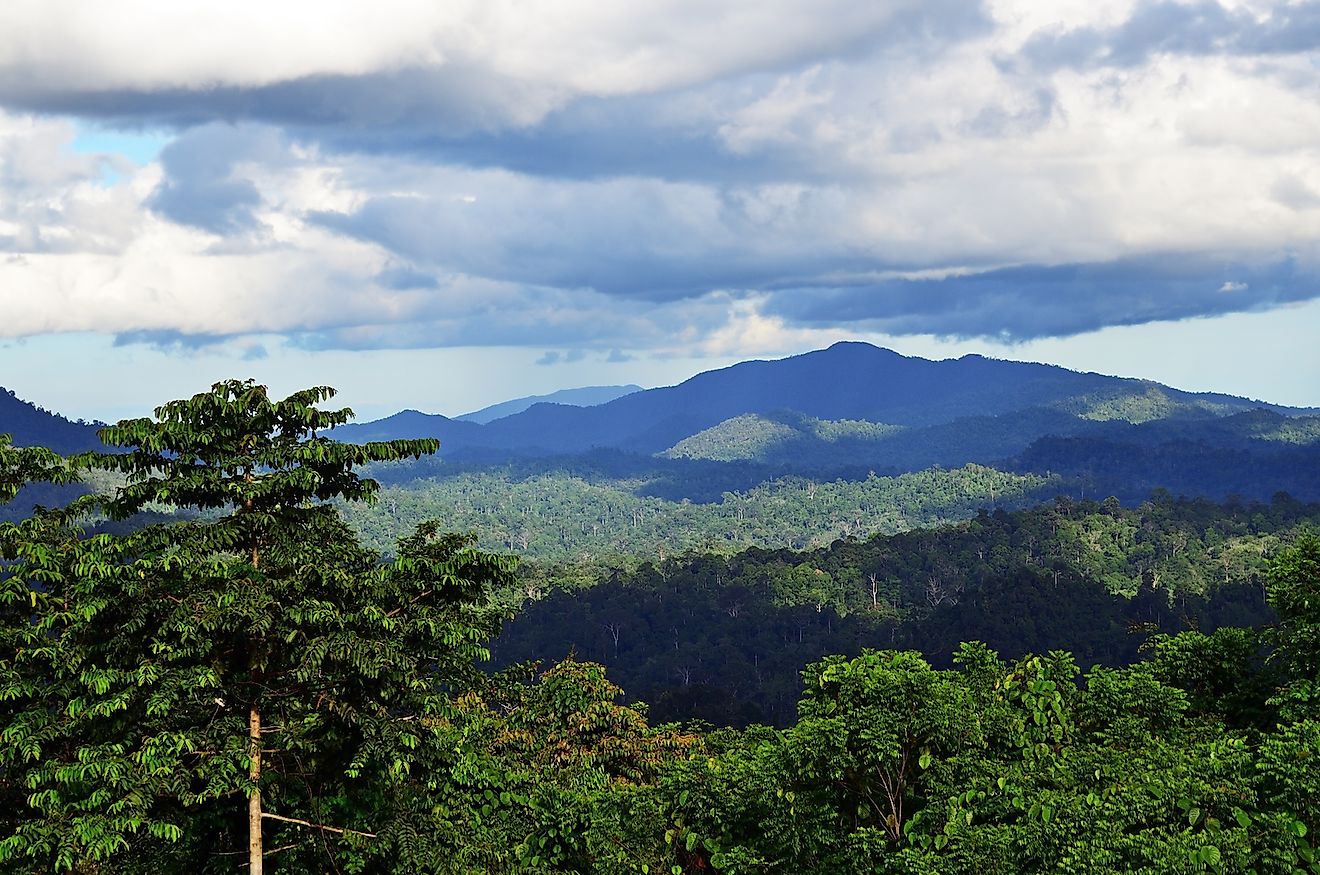
The Danum Valley is a conservation area in Borneo, the largest island in Asia. Relatively undisturbed by human interference, this 438-square kilometer tract of land is mainly tropical rainforest, which grants it a misty, almost eerie quality. It is home to some of the world’s most astonishing creatures, such as pygmy elephants, East Sumatran rhinos, gibbons, and mousedeer. The valley offers tourists the opportunity to trek through the jungle or swim in its many rivers. With over 300 species of birds, it is also a fabulous spot for bird watching. Efforts have been made to nominate the valley as a UNESCO World Heritage Site.
1. Valley of Geysers (Russia)
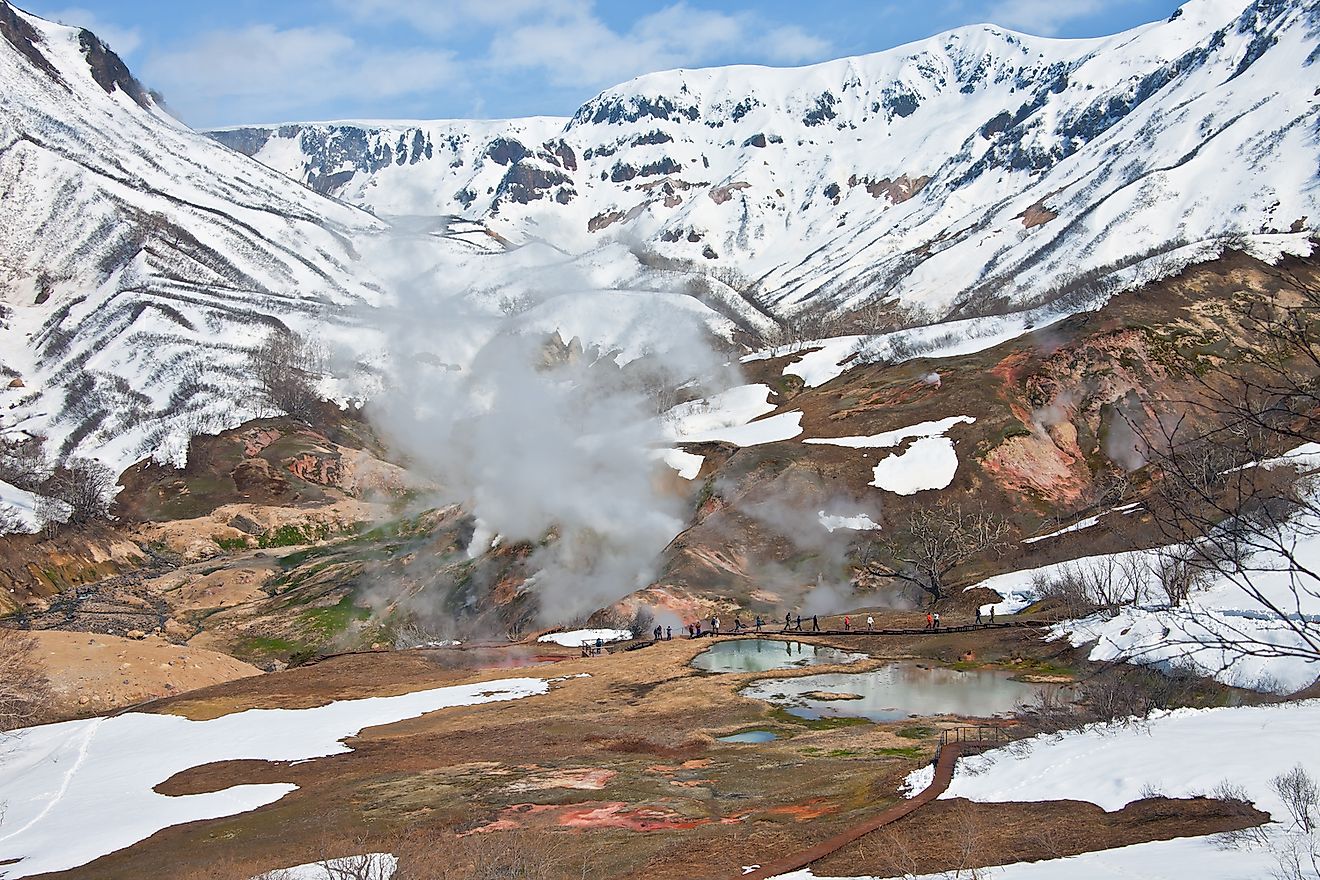
The Valley of Geysers is located in the Russian Far East, approximately 25 miles from the Pacific Ocean. The basin itself stretches 3.7 miles and is considered one of the most important geographic discoveries of the twentieth century. Perhaps unsurprisingly, it is famous for containing the second-largest concentration of geysers in the world. These ninety or so geysers can be as hot as 480 degrees Fahrenheit. They are surrounded by lush green vegetation, but tourists are only permitted to visit the main geysers along the pre-marked safe paths. The valley is only accessible by helicopter.
